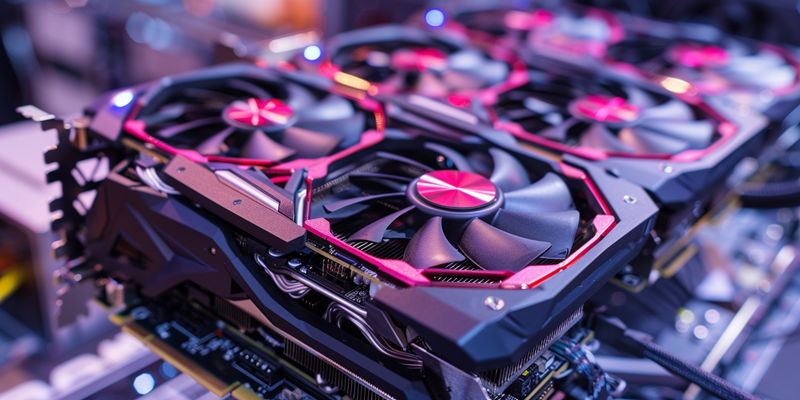NVIDIA’s prowess in the AI landscape with its advanced GPUs such as the A100 and #00 is well known. These GPUs are powerhouses for AI operations in data centers but come with the drawback of substantial energy usage. This issue raises both ecological and fiscal concerns, as the high power consumption of these technologies translates to increased operational costs for businesses employing AI. The tech leader’s challenge is to balance its technological lead with the pressing need to address the energy implications, thereby ensuring its solutions are sustainable and cost-effective in the long term. As the reliance on AI grows, NVIDIA’s ability to innovate in ways that reduce energy consumption without sacrificing performance will be crucial to maintaining its market dominance and supporting the ecological sustainability of AI operations.
The Environmental Cost of Powering AI
The Carbon Footprint of Leading AI Accelerators
NVIDIA’s GPUs, particularly the high-end A100 and #00 models, are fundamental in processing complex AI workloads. Nonetheless, their computational power comes with considerable energy consumption. The massive use of these GPUs in burgeoning data centers could lead to energy usage comparable to that of entire mid-sized nations, which is concerning both environmentally and from a sustainable development perspective. As data centers expand and these accelerators become more prevalent, the environmental impact and sustainability of such energy-intensive technologies are increasingly questioned. The push for energy efficiency is becoming crucial in the tech industry, especially as we grapple with the need for advanced computing power and the imperative to reduce our carbon footprint.
Potential for a Market Shift
With the cost of electricity on the rise and heightened concern about the environmental impact, industries are increasingly seeking more energy-efficient technology for their computing needs. NVIDIA’s GPUs, while powerful, are set to take an additional toll on energy consumption with the anticipated release of the newer, even more power-hungry Blackwell GPUs. This trend could potentially weaken NVIDIA’s hold on the market if the company does not adapt to the burgeoning demand for low-carbon, sustainable computing solutions. Without reining in energy usage, it’s evident that the industry may pivot to alternatives that promise greener efficiency. This shift toward sustainable tech reflects the urgency of mitigating climate change and the corporate responsibility to manage energy consumption responsibly. As the move toward environmentally friendly computing gains momentum, the continued increase in energy demand for powerful GPUs may no longer be viable, signaling an impending transformation in the tech landscape.
The Challenge Ahead for NVIDIA
Striving for Energy Efficiency
NVIDIA is at a crossroads, where the demand for sustainable technology is as high as the demand for its AI performance. The AI hardware arena is rife with competition, putting NVIDIA’s dominance at risk unless it capitalizes on creating energy-efficient solutions. The tech giant must reconcile top-tier computation prowess with a more environmentally sensitive footprint.
Although the prospect of nuclear-powered data centers is intriguing, NVIDIA needs to focus on immediate, practical measures to lead a green transition. Success in this venture could solidify NVIDIA’s position in a market that is growing more eco-aware by the day, as it innovates to reduce energy consumption without sacrificing quality. This pivot to energy consciousness is not only strategic but necessary for NVIDIA to remain a key player in the competitive landscape of AI technology.
The Search for Sustainable Solutions
As the battle against environmental challenges wages on, the urgency for sustainable innovation is more pronounced than ever. NVIDIA, a leader in the AI sphere, cannot ignore this crucial shift. A pivot toward energy-conscious design is not just an option but a necessity to secure its future in a market that increasingly prizes eco-friendly solutions. The tech industry is under the spotlight, scrutinized for its energy consumption, and it is imperative for NVIDIA to adapt. This means committing to advancements that support global initiatives aimed at minimizing energy usage and protecting our planet. Balancing industrial growth with sustainable practices is an exigent task that NVIDIA, given its influential position, must undertake to maintain its relevance and responsibility to environmental stewardship.

